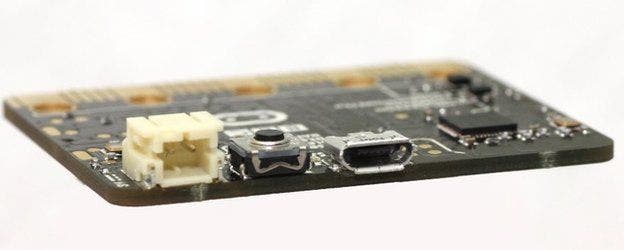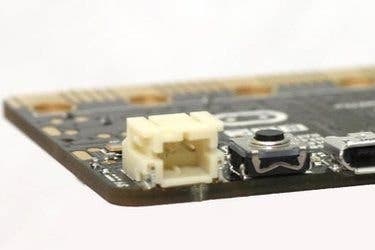The BBC is giving a tiny computer to every year 7 child in the UK - for free
30 years after the BBC Micro, meet the micro:bit.
The BBC has announced the final form of the micro:bit, a tiny computer it's giving to every year 7 child in the UK for free.

The BBC micro:bit is a pocket-sized, codeable computer - and one million have been earmarked for every 11 or 12-year-old child in year 7 or equivalent in the UK for free.
The name is a nod to the 1980s BBC Micro computer, and the device is a part of the BBC's 2015 Make it Digital initiative, which is designed to help inspire kids to get into science, technology and engineering.
The micro:bit is 4cm by 5cm and comes in a range of colours. It has red LEDs that light up and two programmable buttons, so it works as a basic game controller. It also works with other devices via Bluetooth, such as the equally little Raspberry Pi.
Here are the features:
- 25 red LEDs to light up, flash messages, create games and invent digital stories.
- Two programmable buttons activated when pressed. Use the micro:bit as a games controller. Pause or skip songs on a playlist.
- On-board motion detector or 'accelerometer' that can detect movement and tell other devices you're on the go. Featured actions include shake, tilt and freefall. Turn the micro:bit into a spirit level. Light it up when something is moved. Use it for motion-activated games.
- A built-in compass or 'magnetometer' to sense which direction you're facing, your movement in degrees, and where you are.
- Includes an in-built magnet, and can sense certain types of metal.
- Bluetooth Smart Technology to connect to the internet and interact with the world around you. Connect the micro:bit to other micro:bits, devices, kits, phones, tablets, cameras and everyday objects all around. Share creations or join forces to create multi-micro:bit masterpieces. Take a selfie. Pause a DVD or control your playlist.
- Five Input and Output (I/O) rings to connect the micro:bit to devices or sensors using crocodile clips or 4mm banana plugs. Use the micro:bit to send commands to and from the rings, to power devices like robots and motors.
You can program the micro:bit with software that will soon be on microbit.co.uk. You'll have a personal area on the website on which you can save and test your creations in a simulator before transferring them to your micro:bit.
The BBC worked with a raft of companies to help make the micro:bit a reality, including Microsoft, which provided the TouchDevelop web-based programming tools and hosting service as well as teacher-training materials.
The BBC micro:bit will arrive in schools late October, so teachers have a chance to build it into lesson plans for the rest of the academic year. There are plans to found a not-for-profit company to build more units and make them commercially available in the UK and internationally in late 2015.

